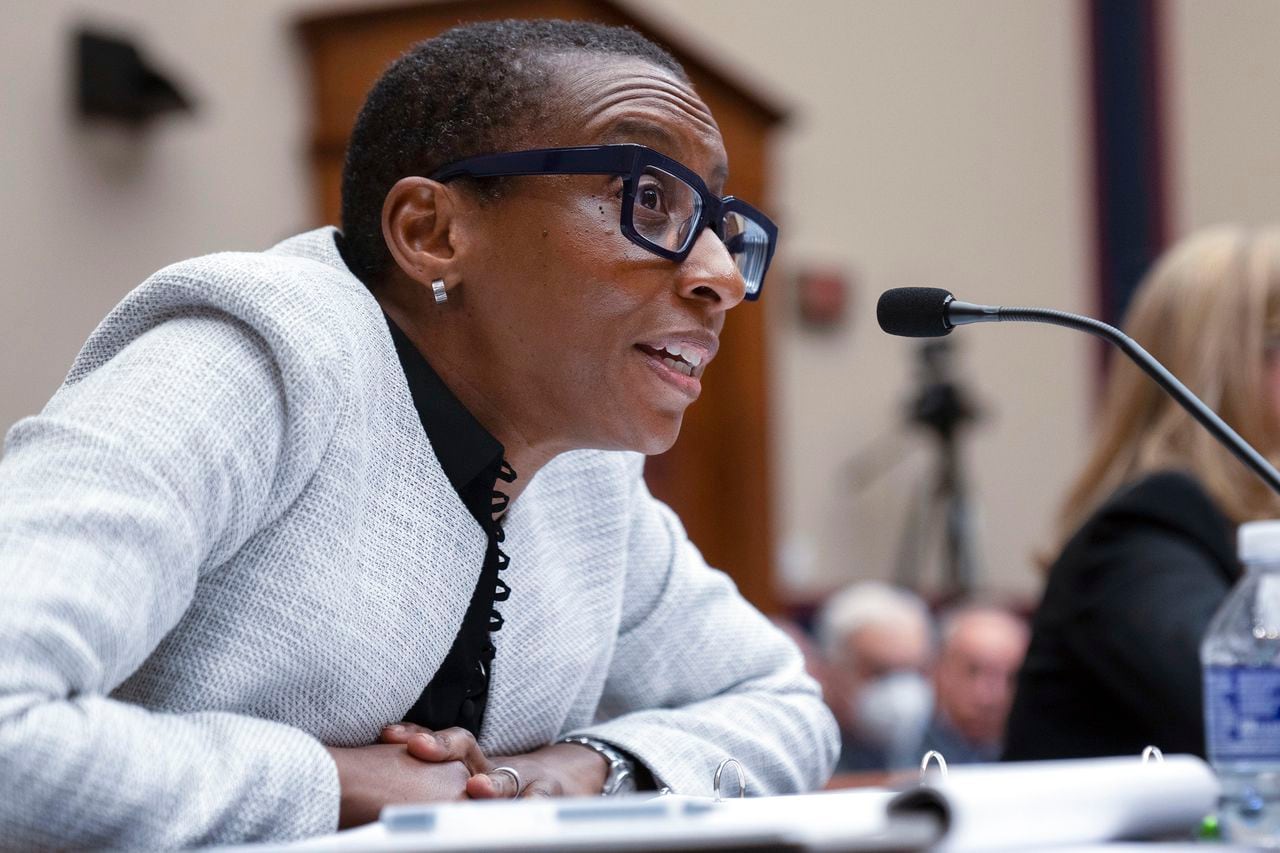
A summary of a Harvard University review, obtained by the Boston Globe, indicates that Dr. Claudine Gay — Harvard’s president — must update more of her writing due to inadequate citation.
Harvard did not immediately return a request for comment on the summary.
Gay has been under scrutiny following the university’s handling of comments from campus groups about the Israel-Hamas war that have been called antisemitic, and then a Congressional hearing during which she equivocated over a question about whether calls for genocide violated Harvard’s code of conduct. Gay had said that those calls would depend on the context.
In a letter of support following the hearing, Harvard’s governing board said it believed Gay should continue to lead the university. However, the letter also addressed issues with Gay’s academic writings following accusations of plagiarism.
The governing board’s support letter stated that an independent review uncovered “a few instances of inadequate citation,” which led to Gay requesting corrections in two articles to insert citations and quotation marks.
In the summary reviewed by the Globe, a review also found issues with Gay’s 1997 PhD dissertation, which she wrote through Harvard’s government department.
The review found “examples of duplicative language without appropriate attribution,” the Globe reported.
The summary said that Gay “will update her dissertation correcting these instances of inadequate citation,” the newspaper said.
Meanwhile, the U.S. House Committee on Education and the Workforce submitted Wednesday a letter to Harvard’s governing board stating it is looking into the university’s handling of plagiarism accusations against Gay.
“An allegation of plagiarism by a top school official at any university would be reason for concern, but Harvard is not just any university. It styles itself as one of the top educational institutions in the country,” the letter reads.
The letter threatened that Harvard’s federal funding could be placed in jeopardy as a result of the plagiarism claims.





